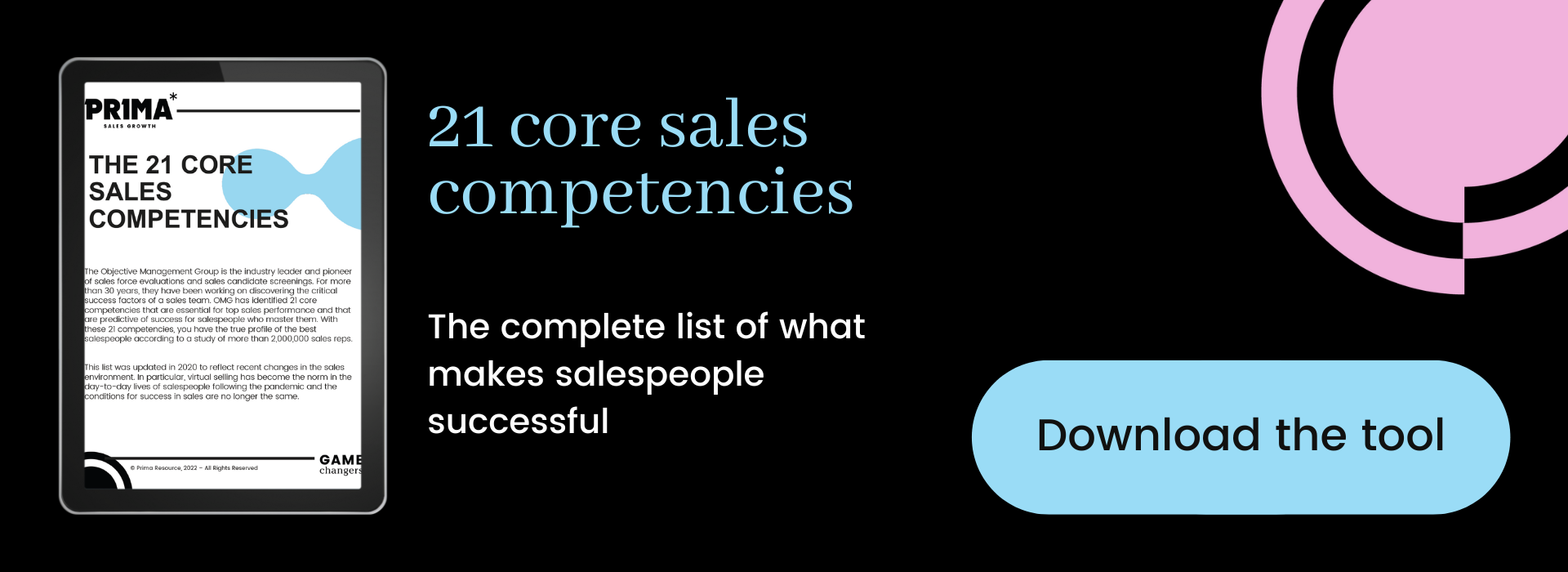
At the end of my sales trainings, the majority of representatives come to realize that they ask their potential clients too few questions. Even when they’re aware of the importance of asking questions during their sales conversations, they recognize that they still emphasize their presentations. They tend to deliver their message without listening or learning about the real needs of their contact.
On the other hand, others don’t hesitate to ask several questions. However, these questions aren’t always relevant and don’t help their sales process.
There two things to consider when thinking about questioning prospects:
- The number of questions asked;
- The quality of the questions asked.
Quantity: do you ask your potential customers enough questions?
Consultative selling is essential. It requires you to question your prospects to discover their compelling reasons for buying, instead of educating them with a sales pitch.
The number of questions is critical.
Most representatives spend between 5 and 10 minutes questioning potential clients, which is grossly insufficient. As an indication, elite consultative salespeople question them for at least 45 minutes.
45 minutes may seem long, but it benefits the salesperson who wants:
- Build credibility;
- Build trust;
- Differentiate him or herself.
By questioning a potential customer in depth, you will stand out. Your prospect will rightly feel that you have grasped his or her objectives in every detail, unlike your competitor with the more reserved approach.
Quality: are you asking the right questions?
Salespeople also have a difficult time asking quality questions. Once the importance of asking multiple questions is understood, the natural reflex is to fill the void at any cost, regardless of the nature of the question.
Irrelevant questions may irritate your prospect – especially when selling at an executive level. Presidents and directors quickly become impatient with questions that could have been researched in advance because they’re a waste of their time.
Prepare yourself by identifying relevant questions
A good question should make the prospect think. It requires the client to look at a situation differently, to consider all possible aspects. It encourages them to examine options not explored in a meeting with competing representative. In short, a good question allows you to differentiate yourself.
Pertinent questions are sometimes difficult to ask because they make the client uncomfortable. It may seem strange to want to cause discomfort.
In fact, it’s very likely that this idea makes you uncomfortable.
However, this approach is critical. It allows you to build your posture and differentiate yourself as a salesperson.
Don’t to scare your customer away
However, be careful not to create resistance. To challenge by asking difficult questions does not mean to confront with aggressiveness. In this case, the opposite effect may occur: you will be sidelined. You will distinguish yourself, of course, but by your cavalier attitude. Instead, you should be sensitive and watch out for any shutdown reactions.
The same effect can occur if, at the outset, you ask a host of questions and immediately dive into presentation after. I bet that the potential customer will detect this false interest, this hidden will to continue the sales speech as soon as the opportunity presents itself!
Takeaway
Dare to go further to stand out. Dig and dig some more! Ask many questions, especially those that require reflection.
Before you start, you may need time to think:
- How to do it differently?
- Which approach to take?
- What are the issues specific to the client’s industry?
- What solutions has he already considered?
Don’t hesitate to deepen your knowledge of preferred sales techniques and tactics. Training, coaching, reading, films, exchanges with colleagues: the answers (and questions!) are everywhere.







